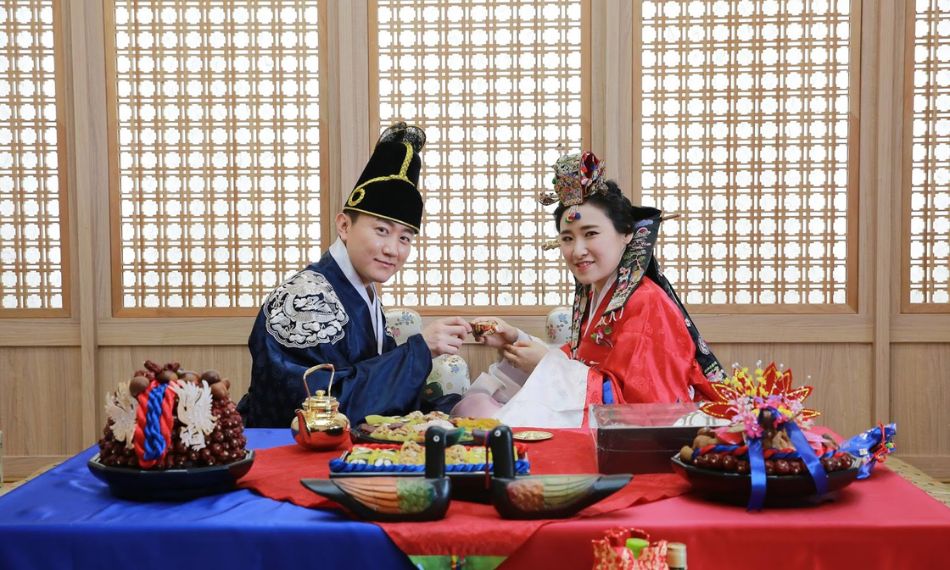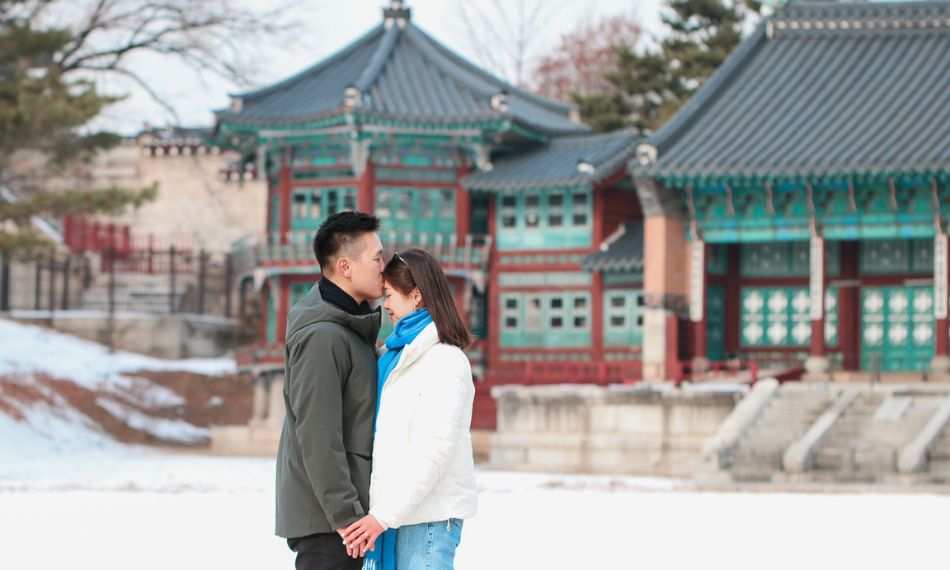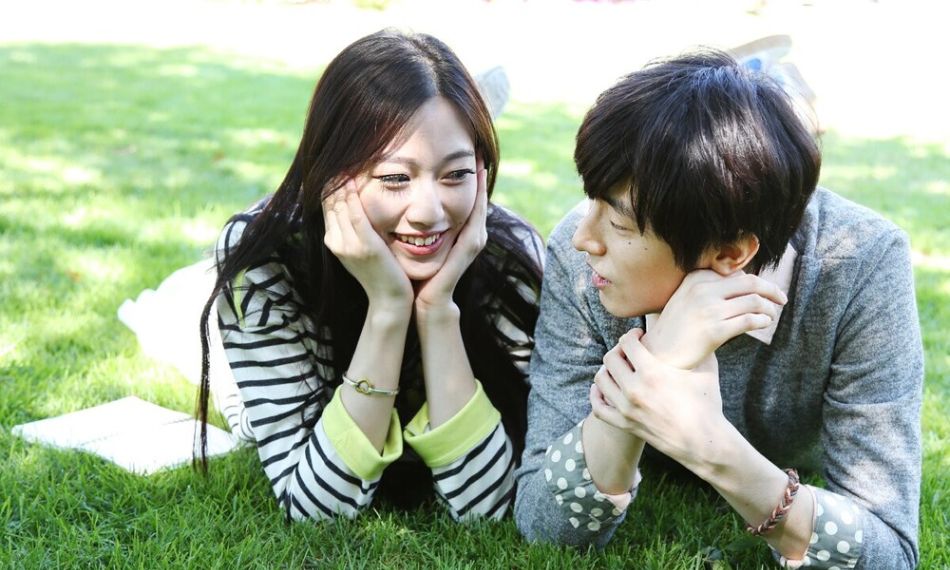Common Ways to Say I Love You in Korean
Unlike English, Korean has multiple ways to say I love you, depending on who you’re talking to and how close you are. Saying I love you too formally or too casually can be weird or even awkward—so context is everything.
사랑합니다 (Saranghamnida) – Formal

This is the highest level of formality. You’ll hear 사랑합니다 (Saranghamnida) in K-pop speeches, wedding vows, or very formal declarations of love. It’s rarely used in daily life unless you’re talking to someone older, in public, or trying to sound extra serious and respectful.
사랑해요 (Saranghaeyo) – Standard Polite

The sweet spot of politeness – 사랑해요 (Saranghaeyo) is perfect for couples, respectful confessions, or when you’re still figuring out the relationship dynamic. If you’re not ready for full-blown informality, this is your go-to.
사랑해 (Saranghae) – Informal

This is the one you’ll hear in K-dramas, late-night texts, and romantic Instagram captions. 사랑해 (Saranghae) is casual and intimate, reserved for people you’re close to—think lovers, long-time partners, or your imaginary K-pop boyfriend.
Read more:
Additional Expressions of Affection
There’s more than one way to say I love you in Korean, and sometimes love isn’t quite the word you want. These bonus phrases give you more ways to show affection—without jumping straight into the deep end.
좋아해요 (Joahaeyo) – I Like You

This is your softer, flirty alternative. If I love you in Korean feels too intense too soon, joahaeyo is your safe, non-threatening option. It means I like you, but romantically.
나는 너를 사랑해 (Naneun Neoreul Saranghae) – I Love You with Pronouns

Do you want to be dramatic? You probably want to add pronouns. Naneun neoreul saranghae literally means I love you, with emphasis on I and you. It’s more poetic and passionate—perfect for dramatic K-drama confession energy.
Contextual Usage of I Love You Phrases
Let’s break it down by social dynamics. In Korean, the way you express love varies depending on the relationship. What works for your girlfriend might not work for your professor (unless things get… complicated).
Addressing Elders or Superiors

This one’s rare, because saying I love you in Korean to a teacher, boss, or elder is not a thing unless you’re talking to your family or it’s a very formal context. But if needed, you should go for polite and respectful phrases.
- 존경하고 사랑합니다 (jongyeonghago saranghamnida) – I respect and love you
- 마음을 표현하고 싶습니다 (maeumeul pyohyeonhago sipseubnida) – I want to express my feelings
- 제 마음을 알려드리고 싶습니다 (je maeumeul allyeodeurigo sipseubnida) – I would like to let you know my feelings
- 오랫동안 좋은 감정을 가져왔습니다 (oraetdongan joeun gamjeongeul gajyeowassseubnida) – I’ve had good feelings for you for a long time
- 진심으로 사랑합니다 (jinsimeuro saranghamnida) – I sincerely love you
- 제 마음이 깊습니다 (je maeumi gipseubnida) – My feelings are deep
- 저의 진심을 받아주셨으면 합니다 (jeoui jinsimeul badajusyeosseumyeon hamnida) – I hope you will accept my sincerity
- 감히 말씀드리자면 사랑합니다 (gamhi malsseumdeeurijamyeon saranghamnida) – If I may be so bold, I love you
- 제 마음을 전하고 싶었습니다 (je maeumeul jeonhago sipeossseubnida) – I wanted to convey my feelings
- 오래전부터 특별한 감정이 있었습니다 (oraejeonbuteo teukbyeolhan gamjeong-i isseossseubnida) – I’ve had special feelings for a long time
- 진지하게 말씀드립니다 (jinjihage malsseumdeeuribnida) – I am telling you seriously
- 제 마음을 숨기고 싶지 않습니다 (je maeumeul sumgigo sipji ansseubnida) – I don’t want to hide my feelings
- 존중하는 마음과 함께 사랑합니다 (jonjunghaneun maeumgwa hamkke saranghamnida) – I love you along with my respect
- 용기를 내어 고백합니다 (yonggireul naeeo gobaekhabnida) – I’m gathering courage to confess
- 마음을 담아 사랑한다고 말씀드립니다 (maeumeul dama saranghandago malsseumdeeuribnida) – I tell you with all my heart that I love you
Speaking with Peers

When it comes to classmates, colleagues, or same-age friends, things get trickier. Most of the time, you won’t be confessing undying love to your coworker, but when the mood strikes, it’s better to choose polite but sincere language.
- 사랑해요 (saranghaeyo) – I love you
- 많이 좋아해요 (mani joahaeyo) – I like you a lot
- 제 마음을 받아주세요 (je maeumeul badajuseyo) – Please accept my feelings
- 당신을 사랑해요 (dangsineul saranghaeyo) – I love you (slightly more formal)
- 제가 좋아하는 마음 아세요? (jega joahaneun maeum aseyo) – Do you know how I feel about you?
- 함께 있을 때 행복해요 (hamkke isseul ttae haengbokhaeyo) – I’m happy when I’m with you
- 특별한 감정이 있어요 (teukbyeolhan gamjeong-i isseoyo) – I have special feelings for you
- 오래 전부터 좋아했어요 (orae jeonbuteo joahaesseoyo) – I’ve liked you for a long time
- 계속 생각나요 (gyesok saenggaknayo) – I keep thinking about you
- 당신 없인 못 살아요 (dangsin eobsin mot sarayo) – I can’t live without you
- 우리 사귀어 볼래요? (uri sagwieeo bollaeyo) – Would you like to date me?
- 당신이 좋아요 (dangsini joayo) – I like you
- 마음에 들어요 (maeume deureoyo) – I’m fond of you
- 제 마음이 커져가요 (je maeumi keojyeogayo) – My feelings are growing
- 솔직히 말할게요… 사랑해요 (soljiki malhalgeyo… saranghaeyo) – To be honest… I love you
Talking to Close Friends or Romantic Partners

This is where the real fun begins. Whether you’re in the talking stage, the soft launch on Instagram stage, or 10 years deep, these I love you in Korean expressions will keep things sweet, playful, or spicy.
- 사랑해 (saranghae) – I love you
- 너무 사랑해 (neomu saranghae) – I love you so much
- 나 너 좋아해 (na neo joahae) – I like you (very casual)
- 너밖에 없어 (neobakke eopseo) – I only have you
- 자기야, 사랑해 (jagiya, saranghae) – Honey, I love you
- 너는 내 전부야 (neoneun nae jeonbuya) – You’re my everything
- 평생 함께하고 싶어 (pyeongsaeng hamkkehago sipeo) – I want to be with you forever
- 미치도록 사랑해 (michidorok saranghae) – I’m crazy about you
- 내 곁에 있어줘서 고마워 (nae gyeote isseojwoseo gomawo) – Thank you for being by my side
- 너 없인 안돼 (neo eobsin andwae) – I can’t be without you
- 너랑 있으면 행복해 (neorang isseumyeon haengbokhae) – I’m happy when I’m with you
- 우리 영원히 함께하자 (uri yeongwonhi hamkkehaja) – Let’s be together forever
- 나 너한테 푹 빠졌어 (na neohante puk ppajyeosseo) – I’m completely fallen for you
- 오직 너만 사랑해 (ojik neoman saranghae) – I only love you
- 내 맘 알지? 사랑해 (nae mam alji? saranghae) – You know how I feel, right? I love you
Conclusion
Saying I love you in Korean is more than words—it’s culture, tone, and timing. Are you ready to confess to your K-crush and go deeper than just ‘saranghae”? Start your Korean language journey with GuruLango. Trust us, it’s a vibe.